Submitted by WA Contents
MAD hides culture and arts center beneath metal roofs scattered like "bamboo leaves" in China
China Architecture News - Sep 15, 2023 - 14:38 3735 views
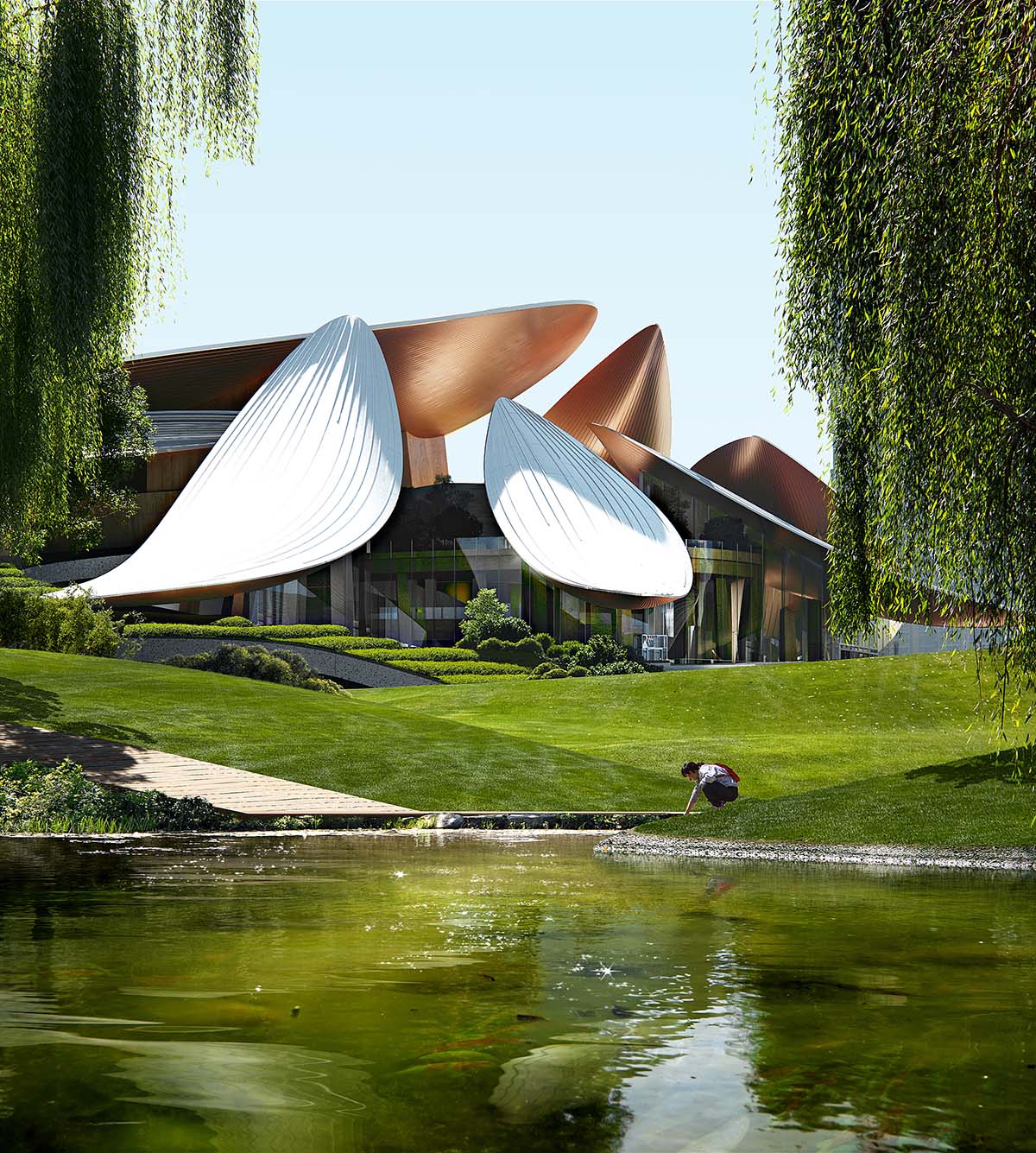
MAD Architects has revealed design for a new culture and arts center that is hidden beneath white metal roofs scattered like "bamboo leaves" in Anji, China.
Called Anji Culture and Art Center, the 120,000-square-metre project will consist of six major venues: Grand Theater, Conference Center, Leisure Center, Sports Center, Youth Activity Center, and Art Education Center.
Venues are spread out beneath the "bamboo leaves" roof surrounding the green tea fields unique to Anji.
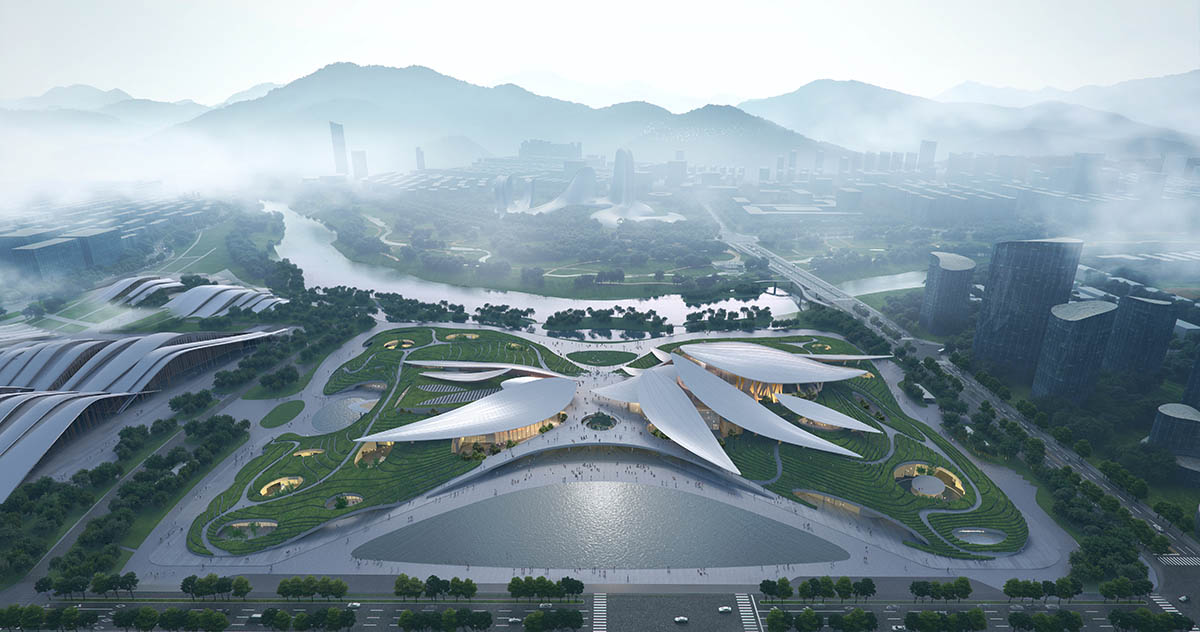
The project, covering an area of about 149,000-square-metre, is located in the Zhejiang Province in southeast China, near Shanghai.
"Anji is the only county to win the "United Nations Habitat Award" and has been praised as “bamboo” and “white tea” town of China," said MAD, led by MAD founder and principal Ma Yansong.
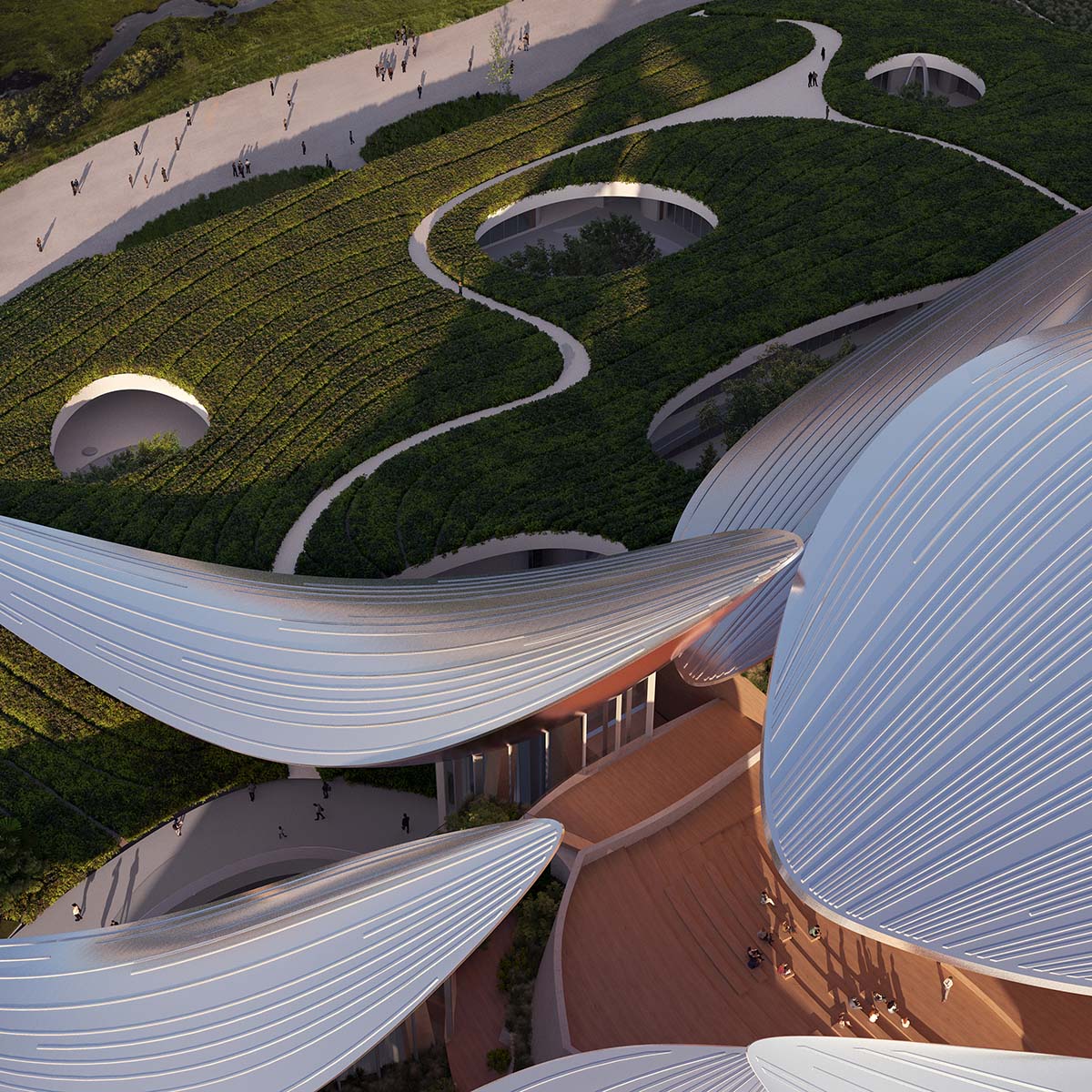
"The project is designed as a transitional connecting space between the natural and built environments of the region; on the east side lies the city, while the river and the mountains in the distance on its west side."
"We pursue the unique aura of this region and integrate it into everyday life," said Ma Yansong.
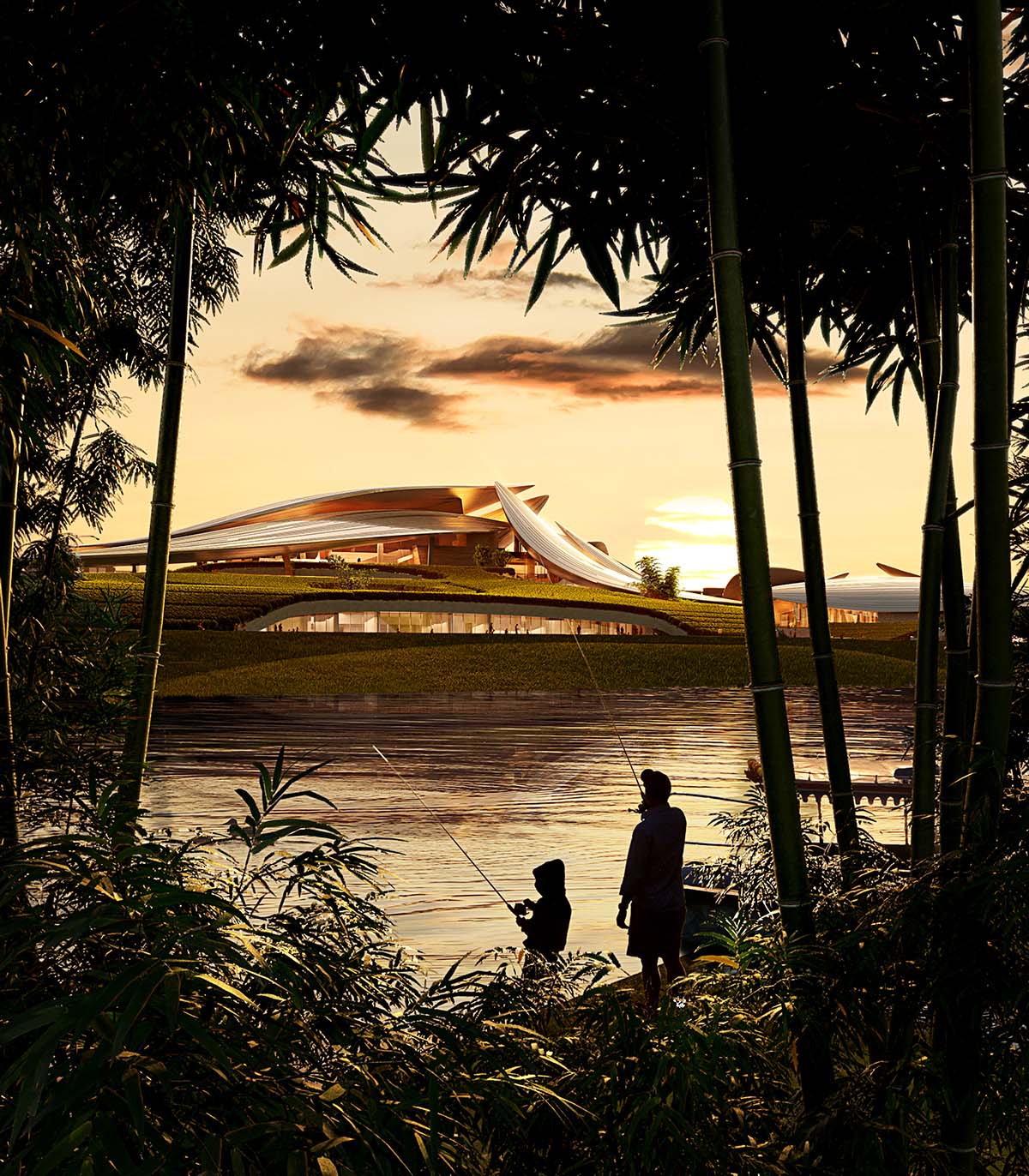
Conceived as a porous meeting space, the project will be accessible to the public from all directions and at all times of day.
It is arranged along the axis of the visual corridor on both sides to allow the central corridor to become an open outdoor platform where visitors can take in framed views of the mountains and the sky above.
The six venues are distributed beneath the white tiled roof, delivering an undulating silhouette. To achieve this wavy silhouette, MAD is inspired by the shape of the surrounding hill planted with Anji white tea.
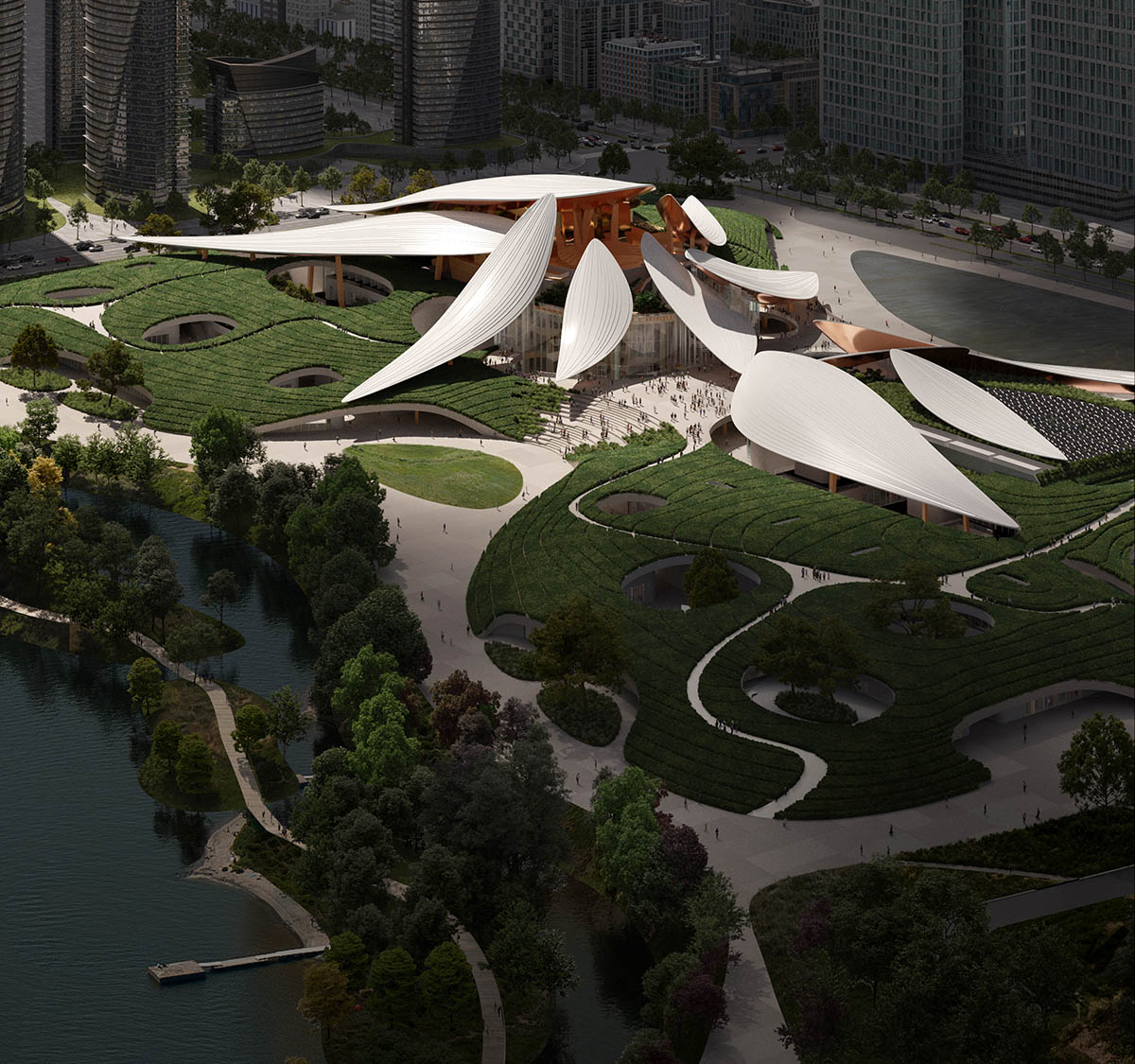
The complex has multiple courtyards across the site function as programmatic gaps that dissolve the boundaries between indoor and outdoor space. On the west side of the project, a large stage will be used as an outdoor venue for performances, concerts and exhibitions.
The key feature of Anji Culture and Art Center is composed of a series of overlapping metal roofs that resemble "scattered bamboo leaves" with ridges that add visual complexity to the breathtaking landscape.
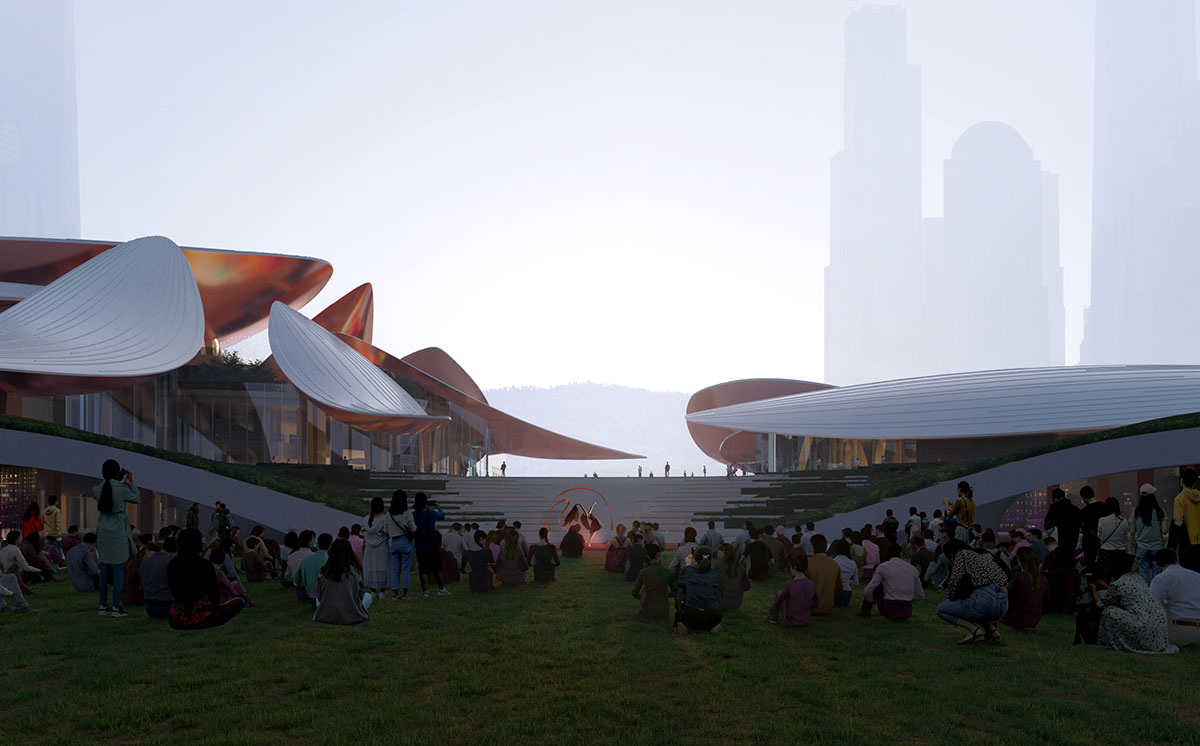
"The gaps between them allow natural light to enter the interior, while the main facade is highly transparent to additionally invite natural light through its side elevations," MAD explaine.
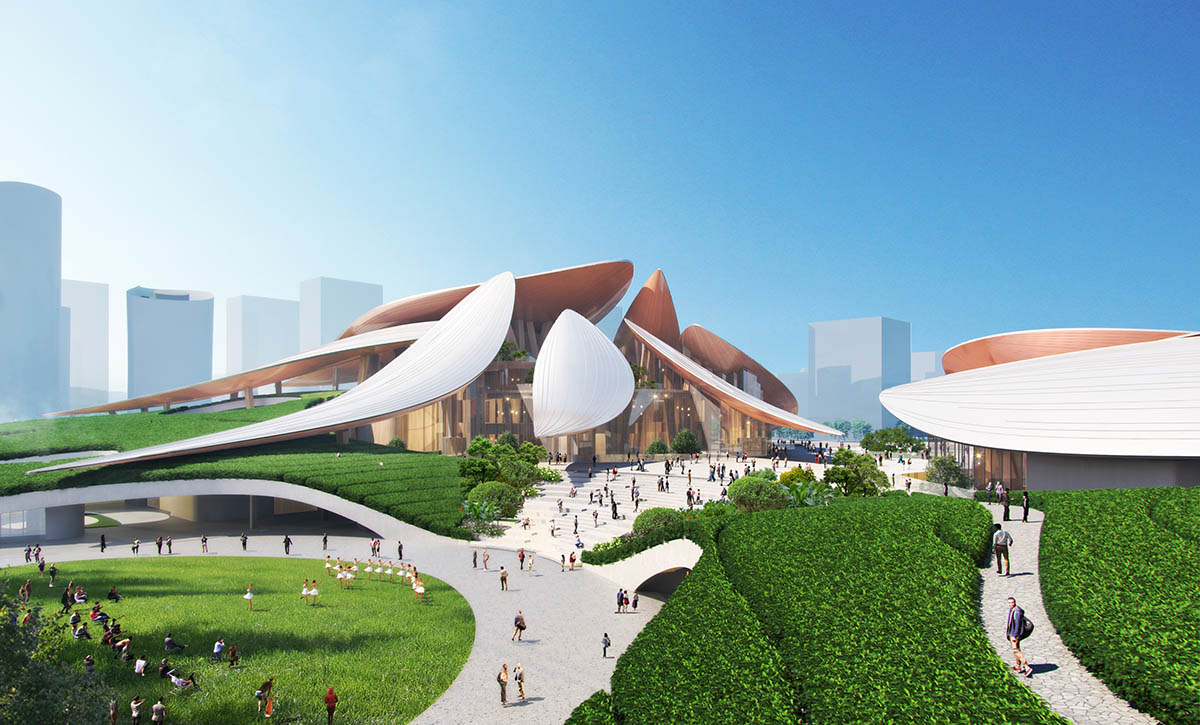
The main façade reaches up to 17 meters, and it "will be the highest self-supporting glass wall in China when it is completed," according to the studio.
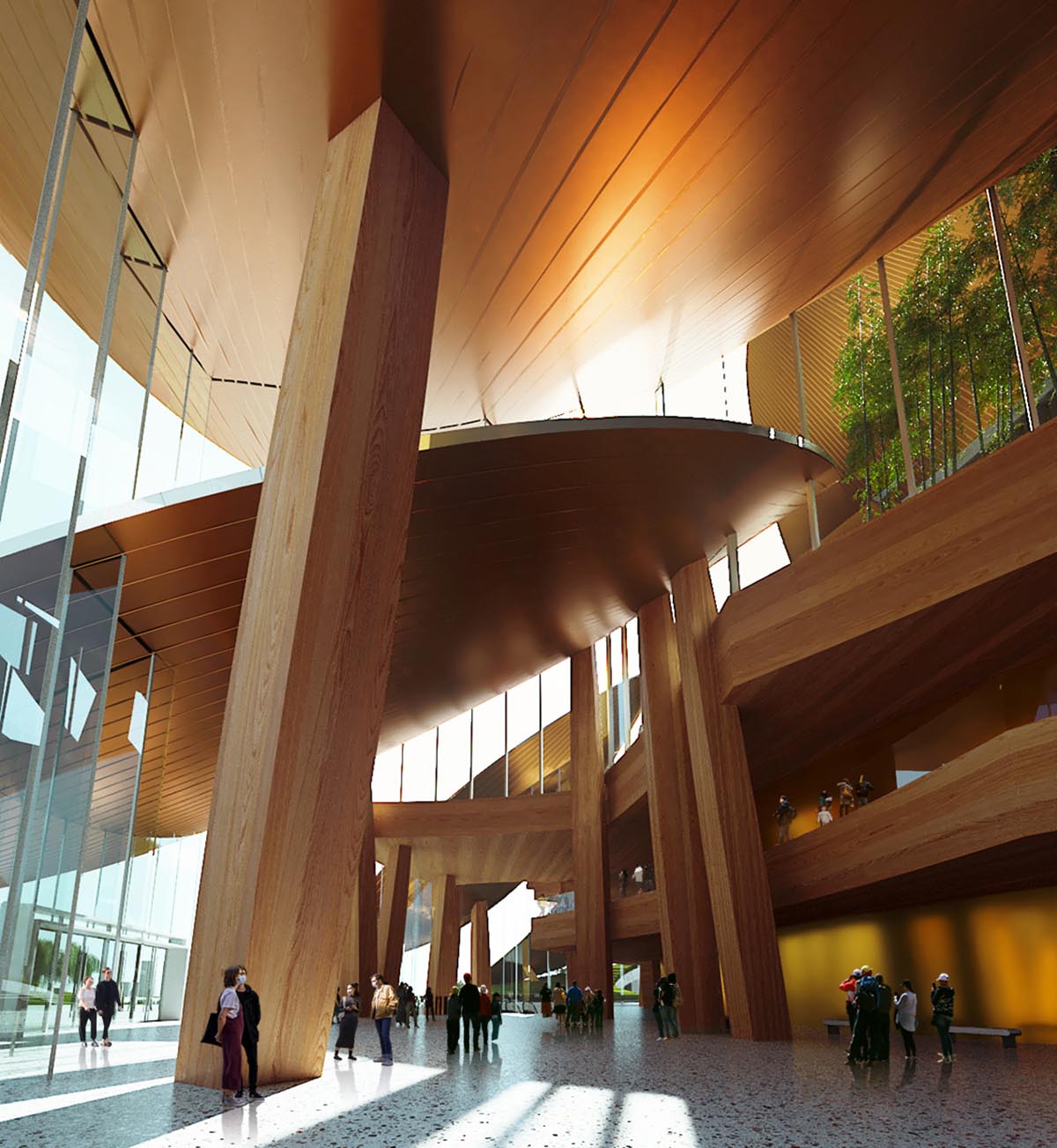
Following the same complexity inside, the main interior space of the Grand Theater and the Conference Center is a two-to-three-story layout, while the other four venues are a first-floor plus a partial second-floor layout.
The building will house a 1,300-seat auditorium for a Grand Theater, and the 2,000-seat main hall for a Conference Center dedicated for events and meetings.
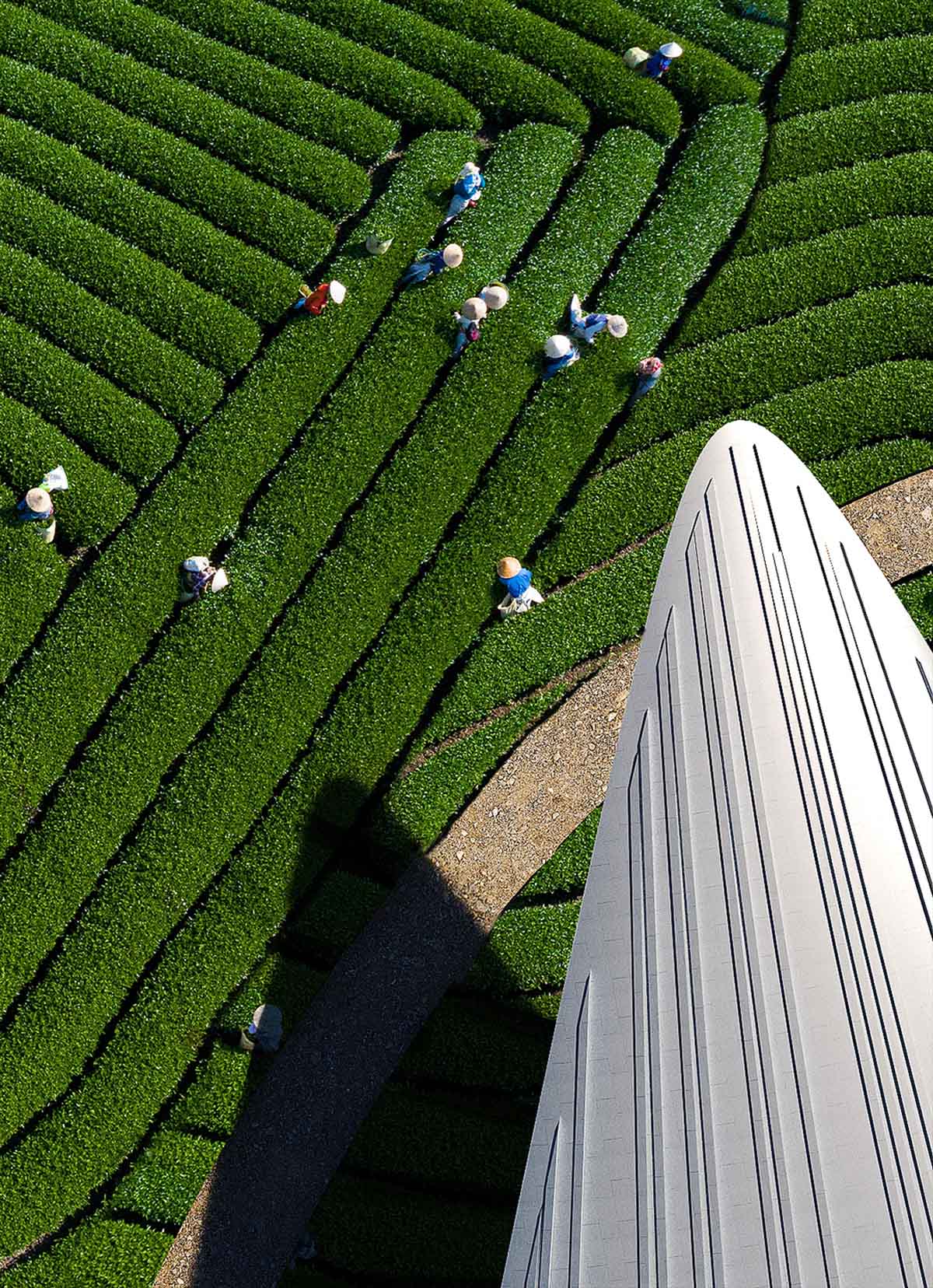
To deliver an energy-efficient building and optimize energy use, the project will incorporate roof greening, permeable pavement, recessed green space and rainwater resource utilization.
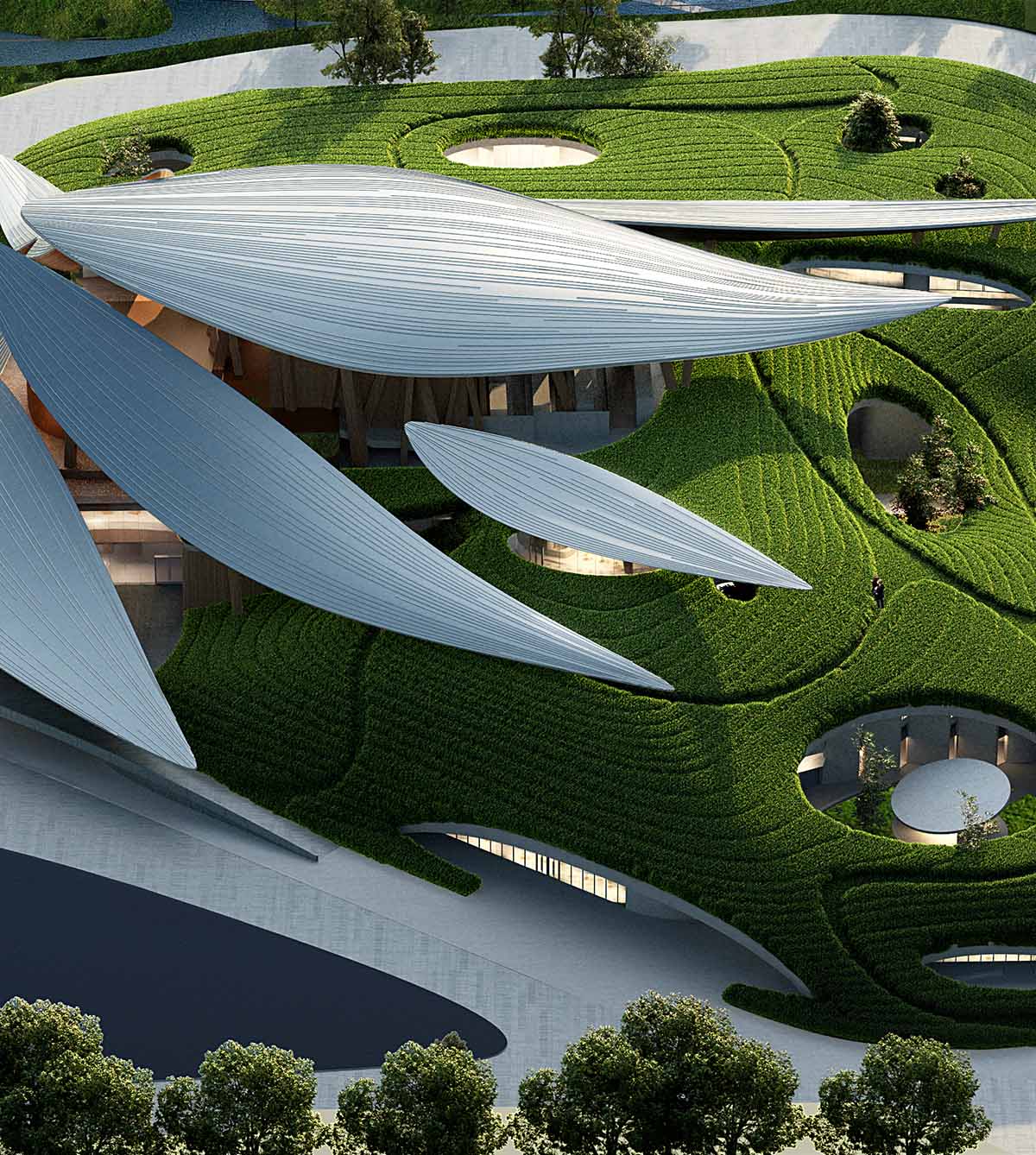
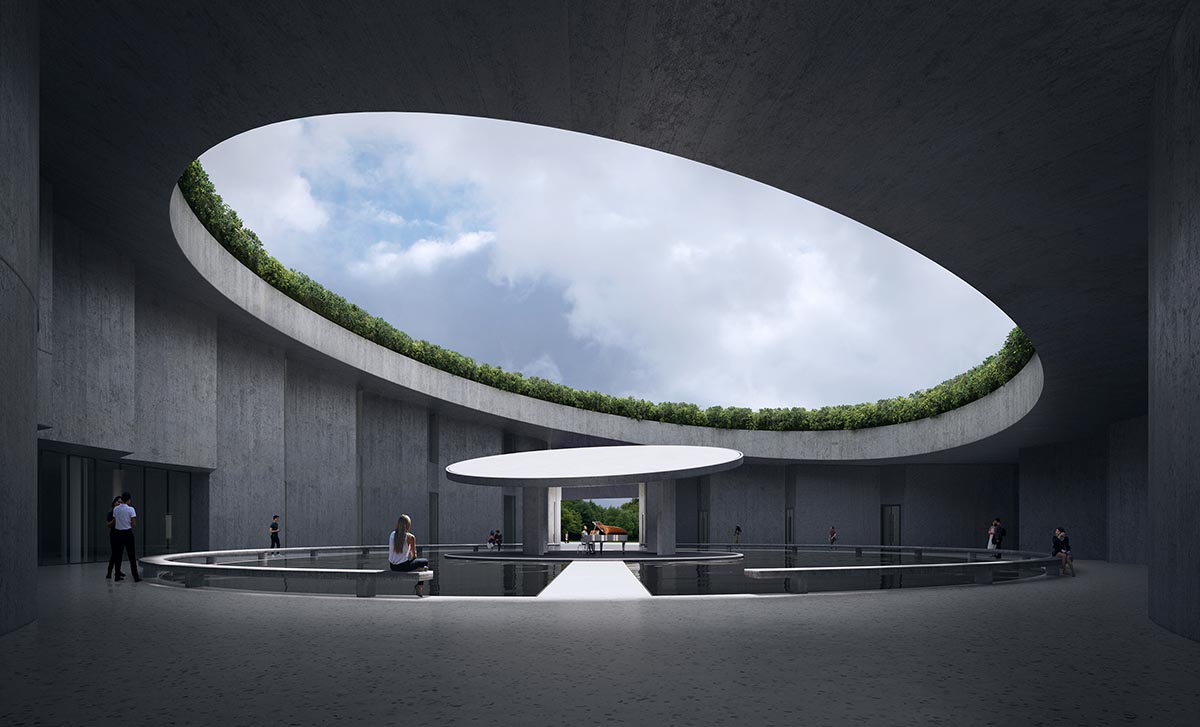
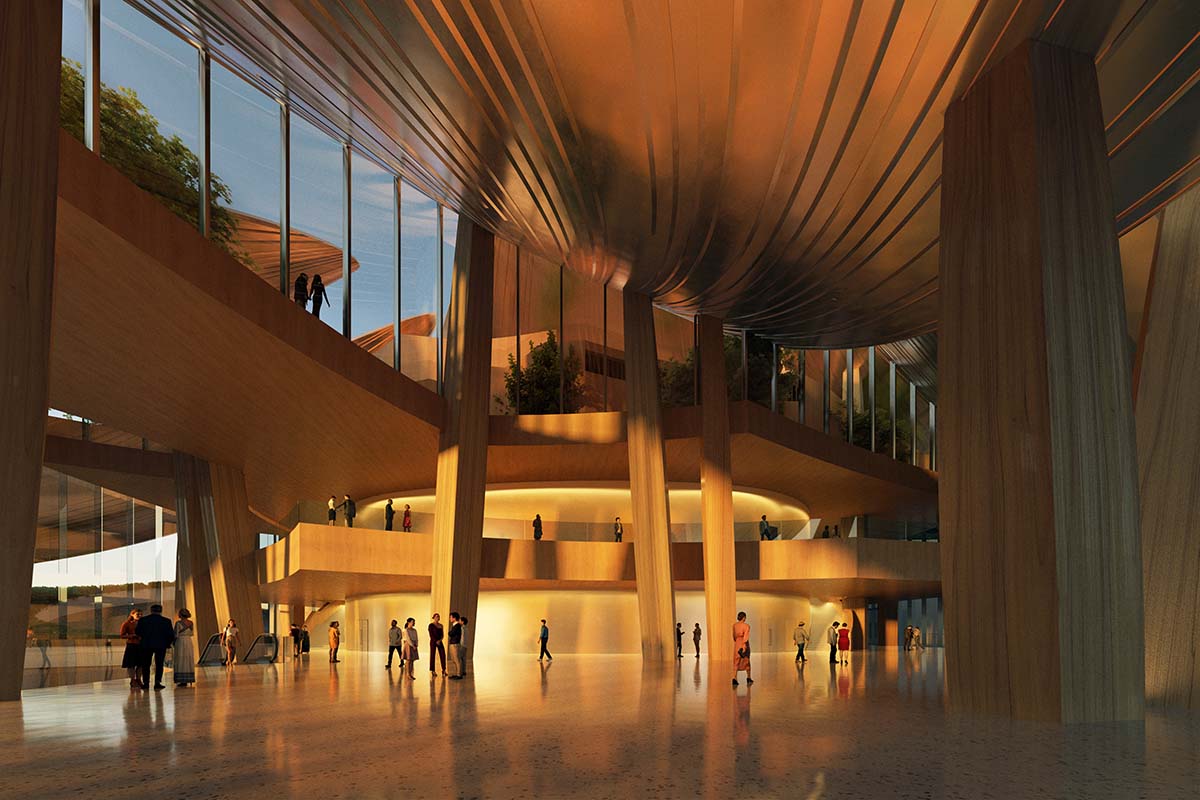
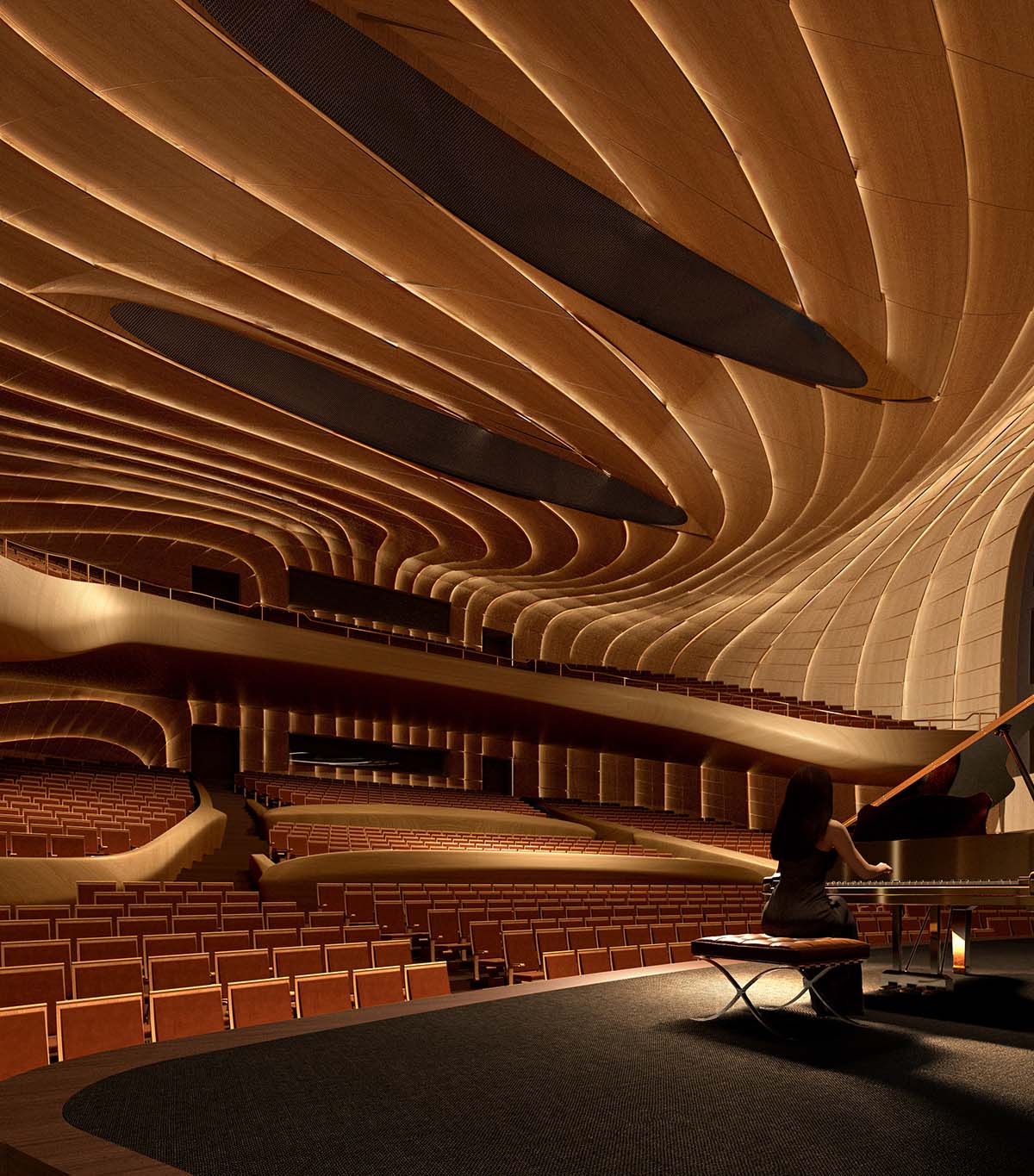
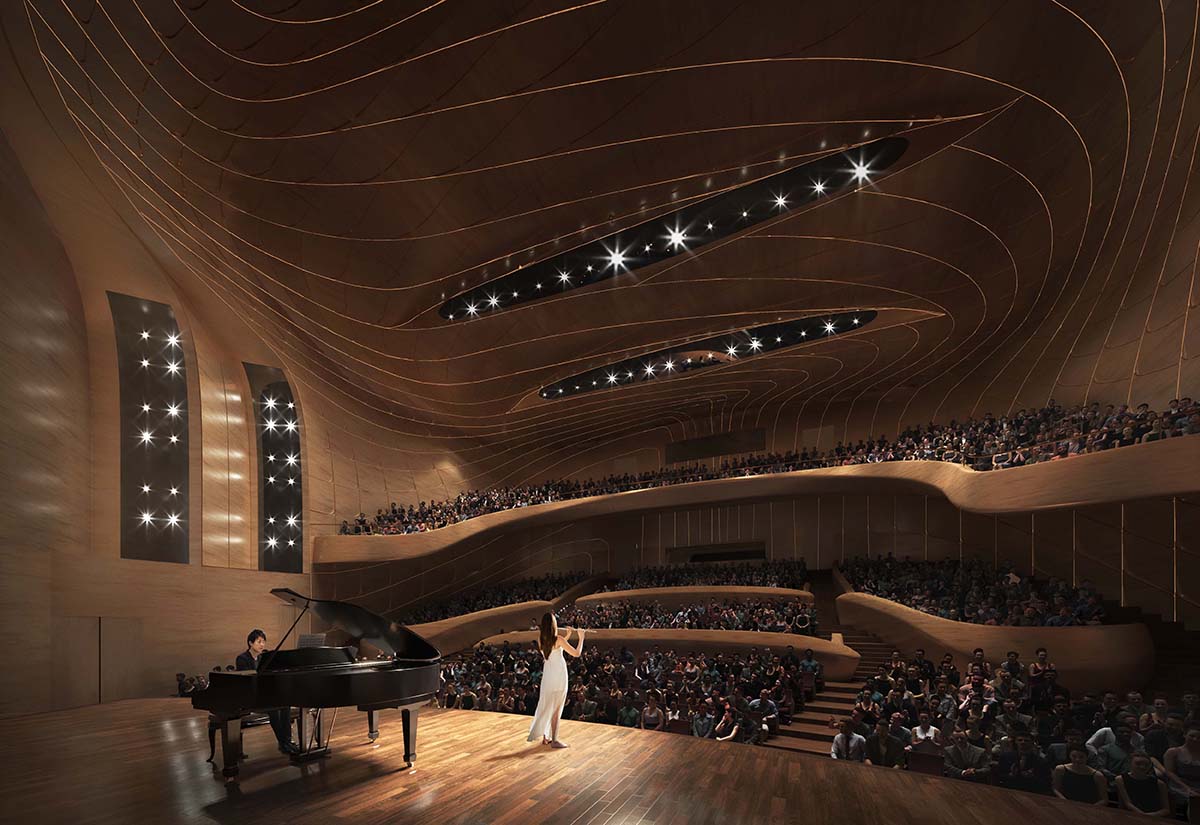
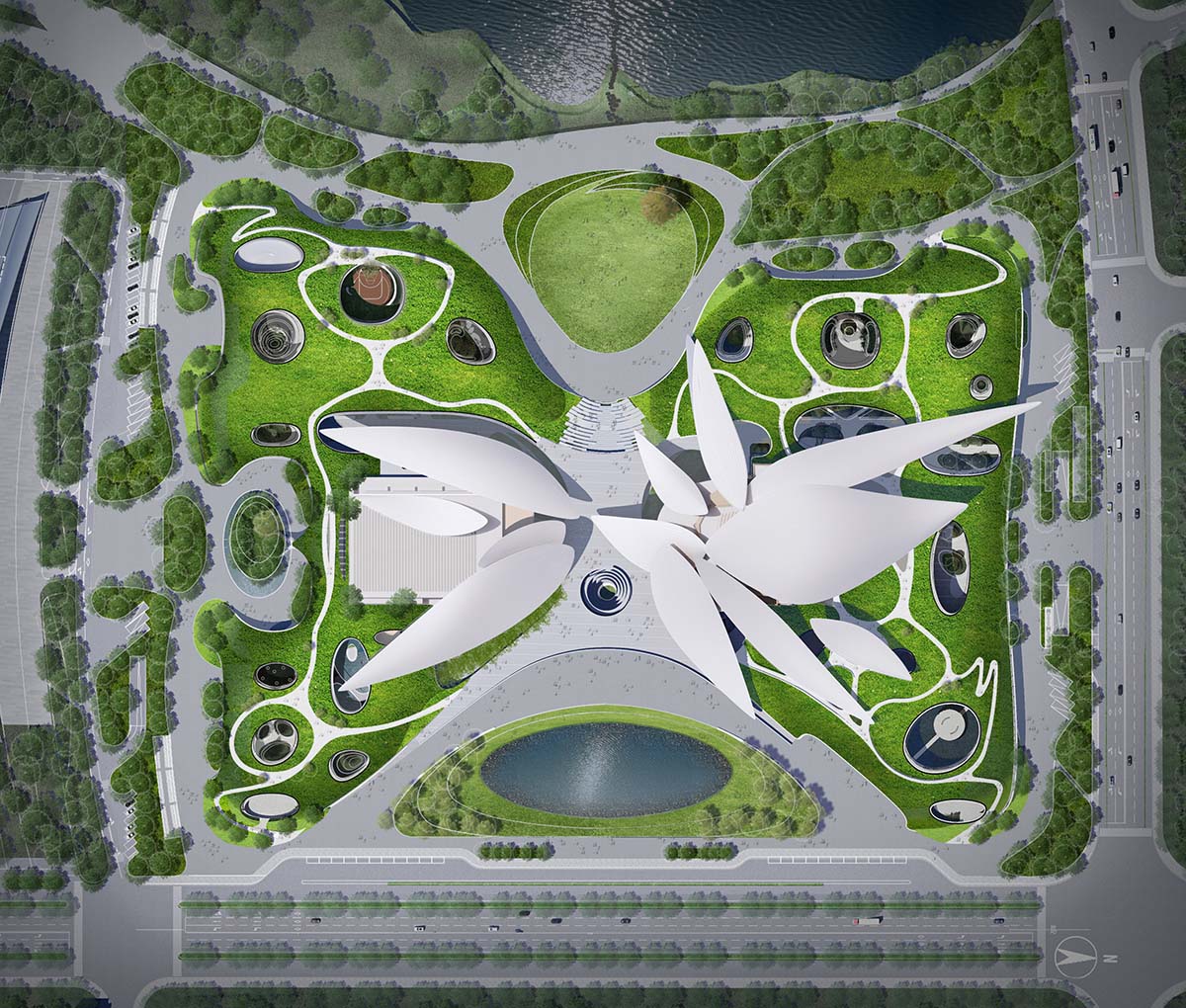
Masterplan
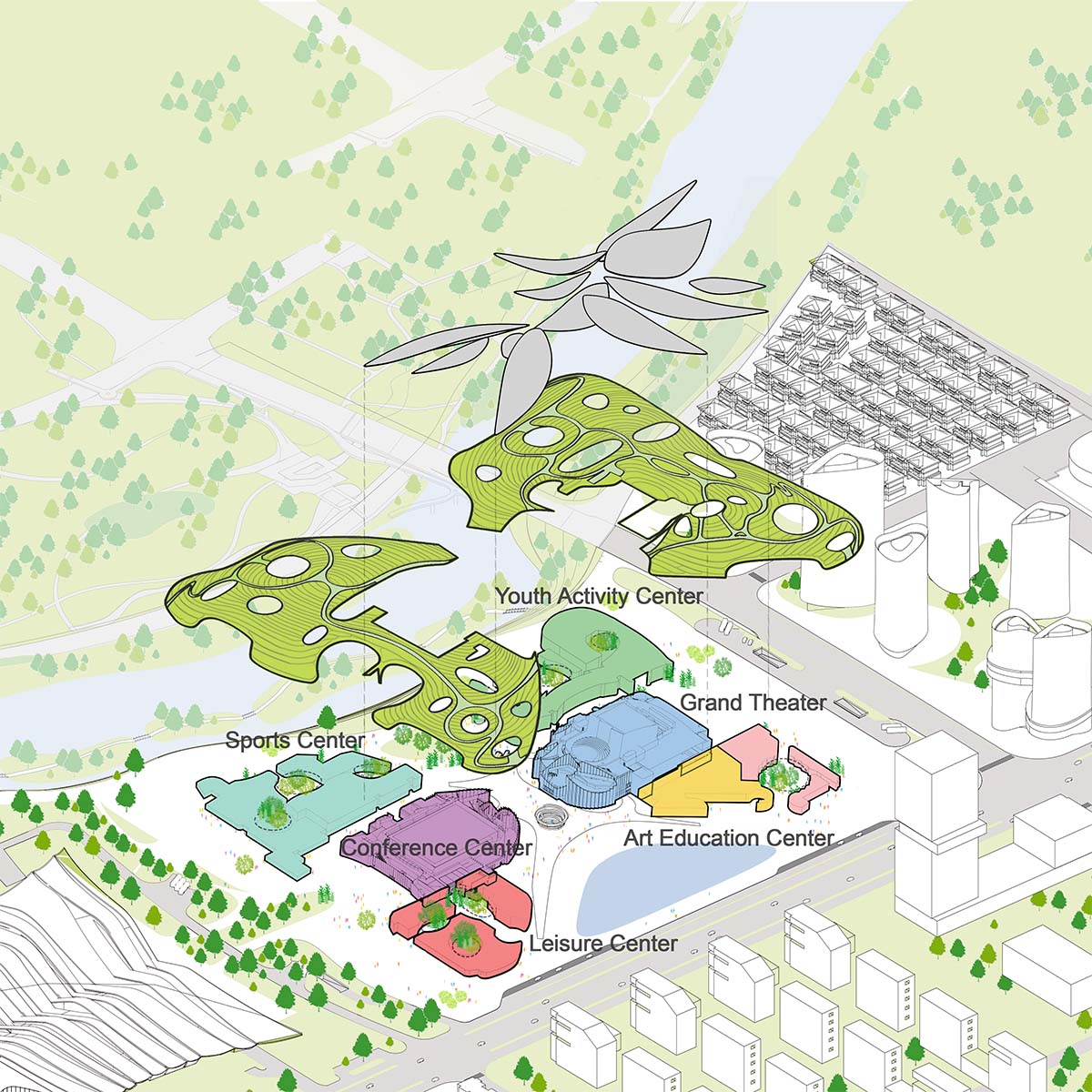
Anji Culture and Art Center, Diagram
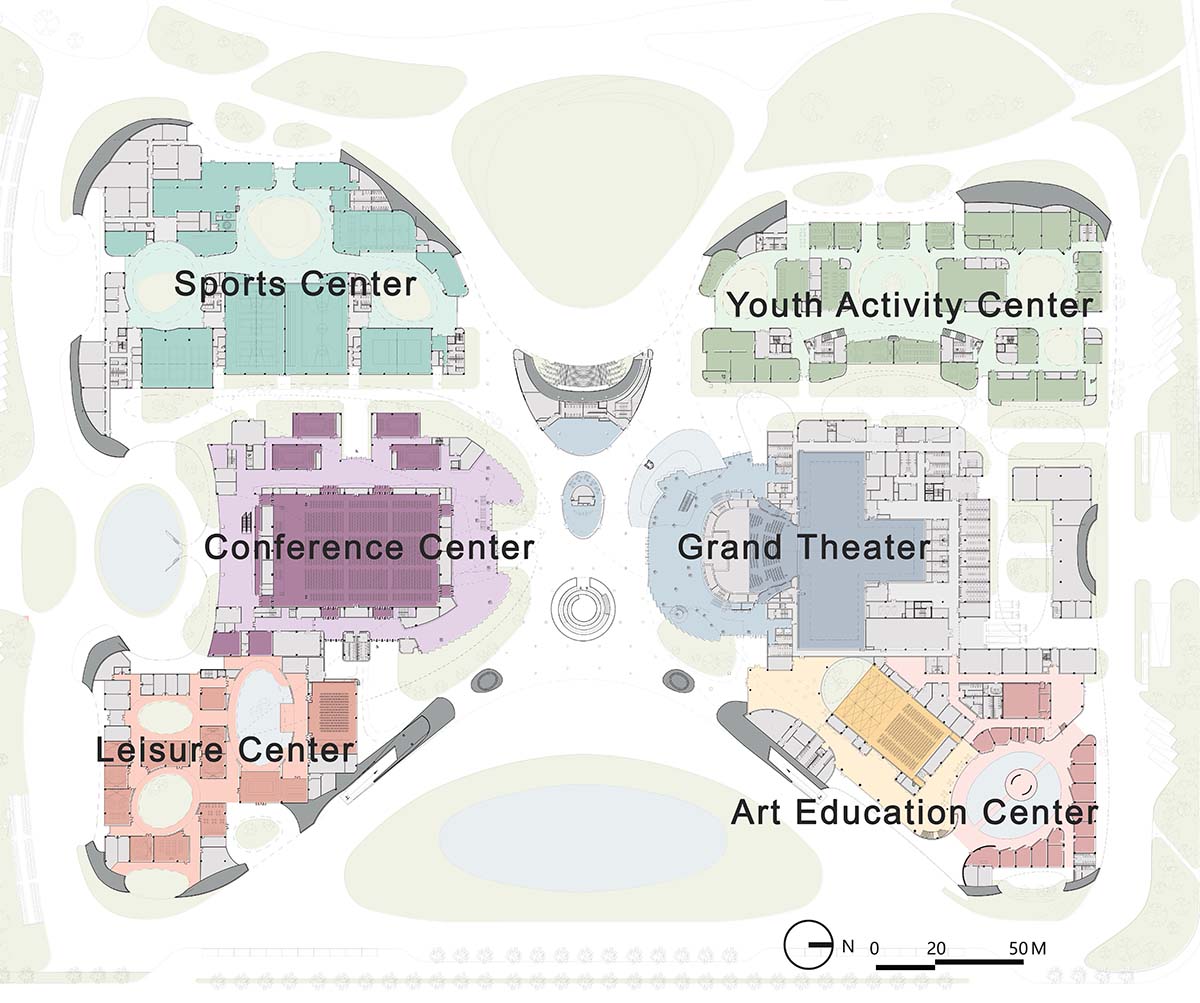
Anji Culture and Art Center, First Floor Plan

Model view
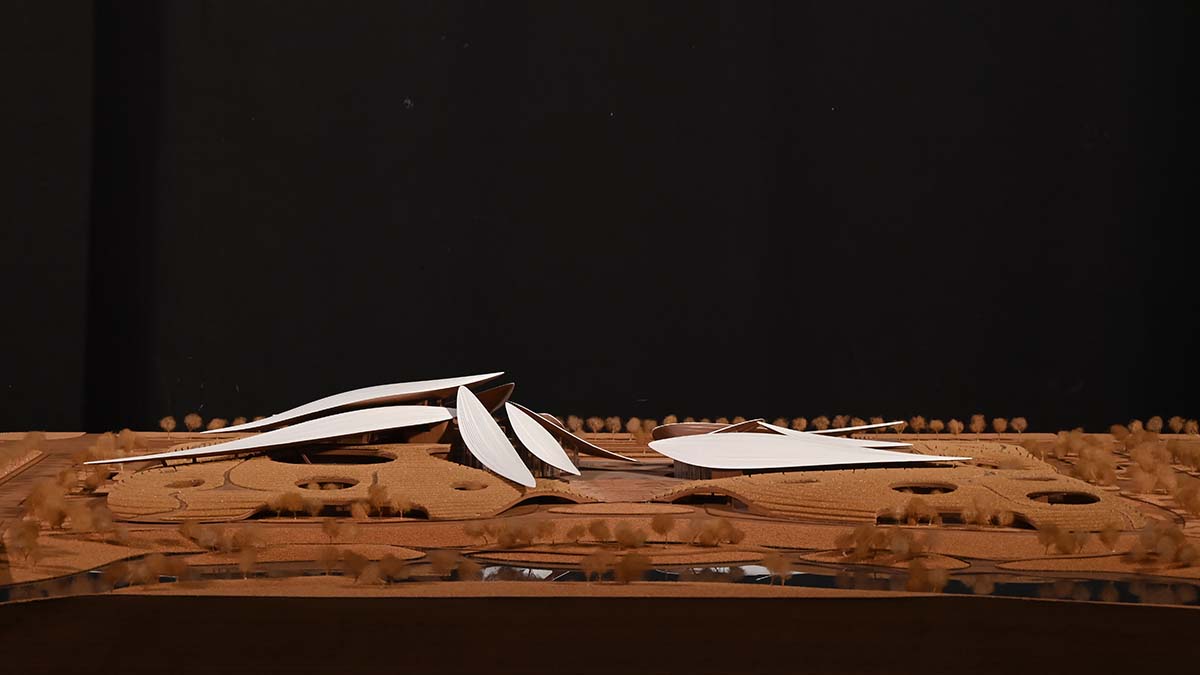
Model view elevation
The Anji Culture and Art Center is currently under construction and is expected to be completed and opened in 2025.
MAD created a meandering open-air performance venue for the Aranya Theater Festival in China. The firm is working on the transformation of an old warehouse on the south bank of the Mas River Rotterdam into a center for dance.
MAD Architects in collaboration with China Airport Planning & Design Institute and Beijing Institute of Architectural Design are also designing the Changchun Longjia International Airport Terminal 3 in China.
Project facts
Project name: Anji Culture and Art Center
Architects: MAD Architects
Location: Anji, China
Date: 2023-2025
Site Area: 149,000m2
Building Area: 120,000m2
Principal Partners in Charge: Ma Yansong, Dang Qun, Yosuke Hayano
Associate Partners in Charge: Kin Li, Liu Huiying
Design Team: Sun Shouquan, Dong Xue, Li Guangchong, Zhang Xiaomei, Wang Xianbo, Xi Kaiyu, Chen Bohan, Zhao Lilu, Deng Wei, Lin Yijun, Liu Yiqing, Qiao Xuantong, Hao Yue, Zou Dengyu, Jose Maria Urbiola, Wang Zhuyun, Shang Li, Wu Aoqian, Song Chi, Zeng Tianxing
Client: Anji Construction Holding Group
EPC: Tongji Architectural Design (Group) Co., Ltd., China Construction Eighth Engineering Division Corp., Ltd.
Façade Consultant: Tongji Architectural Design (Group) Co., Ltd.
Landscape Design (Tea Field + Courtyard): Earthasia (Shanghai) Co., Ltd., Young-High Landscape Design Consulting Co., Ltd.
Landscape Design (Site): Wildscape Design Inc.
Acoustic Consultant: ECADI_Acoustic & Theater Specail Design & Research Studio
Interior Design: MAD Architects, Jianfeng Construction Group Co., Ltd.
Theater Technical Consultant, Stage Technology and Conference System Design: Poly (Beijing) Theater Construction Engineering Consulting Co., Ltd.
Lighting Consultant (Overall + Theater): Ning field lighting design Corp., Ltd.
Lighting Consultant (Conference + Podium): Shanghai Ruiyi Environmental Design Co., Ltd.
Signage Design: NDC CHINA, Inc., City Code (Shanghai) Architecture Design co., LTD
All images courtesy of MAD Architects.
> via MAD
